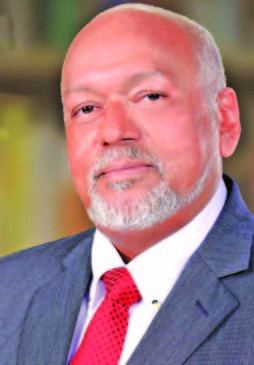
Continued from last week
We began to see a change in the 1985 General elections. By that time, Forbes Burnham had died. His successor, Desmond Hoyte, began to make some reforms which gave the hope to some that the elections would have been free and fair.
The reforms included some relaxation on the press, in that period the Stabroek News was born. He also abolished overseas voting, a method used extensively by the Burnham-led PNC to rig elections. As a result, seven parties contested the poll. They were: PPP, PNC, UF, Working People’s Alliance (WPA), Democratic Labour Movement (DLM), National Democratic Front (NDF), and People’s Democratic Movement (PDM).
However, the hopes were all dashed. Desmond Hoyte’s PNC massively rigged the 1985 elections. It was the worst rigged elections in our history.
That defeat did not daunt the participants. They began to advocate even more vigorously for a return to Democracy. The opposition parties decided to unite into the Patriotic Coalition for Democracy (PCD). The PCD was formed to pressure the Government for real changes. It was making important gains. The Guyanese people’s resistance increased greatly.
In the meantime, the international situation had undergone some great changes as well. The Cold War had ended with the collapse of the Soviet Union.
The combination of a united opposition at home and a new international situation in which the threat of “communism” was removed created favourable conditions for change in Guyana.
The Republic Day message by President George Bush to Desmond Hoyte in 1991 clearly signalled that the US position on the toleration of rigged elections in Guyana had come to an end. That gave great hope to the democratic forces that the people’s vote would finally be counted.
As a result, eleven (11) parties contested the 1992 General Elections, in which the PPP/Civic emerged victorious despite many predictions that it could not win 50% of the votes. Indeed, it won 53.45%.
Since then, the amount of parties contesting the elections have more or less been constant. What has been changing is the fact that some parties have been combining before the elections. We have seen GAP/WPA; GAP/ROAR; and later APNU, in which some seven parties have combined.
This year, we have seen a massive jump in the amount of political parties on the scene. Many parties are emerging, representing smaller and smaller group interests.
In an atmosphere in which there is the possibility of free elections, many are staking claims. To get into the National Assembly, a party needs only approximately five thousand votes. However, that one or two seats can give that party much greater bargaining power than its popular vote. This would be so in a situation where no party or combination of parties gets fifty-one percent of the votes.
With free and fair elections, the second objective of the then Colonial Power when Proportional Representation was imposed began to become a reality; that is: to have “weak” coalition governments in Guyana. No doubt some, particularly leaders of the smaller parties, would see this as a good thing. However, it could be the worst thing that can happen to our country, with the exception of rigged elections and undemocratic governments.
Weak governments create instability, and are a big obstacle to progress.
Remember that we will, in the immediate future, be an oil producing country. We will have to deal with very powerful international companies with revenues bigger that the Caribbean states combined. That group would have the resources to finance parties and ensure that the major companies have the power, because of the parties they could control.
Weak governments and undemocratic regimes can turn our country into a playground and our people into playthings in the hands of mighty transnational companies more than fifty years after we saw the contours of weak puppet government in Guyana.
The best way forward is to have a strong, democratic administration, that seeks to build consensus to deal with international capital and to give Guyana and its people the best conditions for socio-economic progress.
Those who advocate constitutional reform should consider reviewing the electoral system specifically, joining with the rest of the Caribbean and return to the First Past the Post (Constituency) System, as it is the best system to ensure strong governments.
History and experience have shown that only the People’s Progressive Party/Civic has the capacity to stand up for the good of the whole nation.
A strong PPP/Civic is indispensable for our nation.



